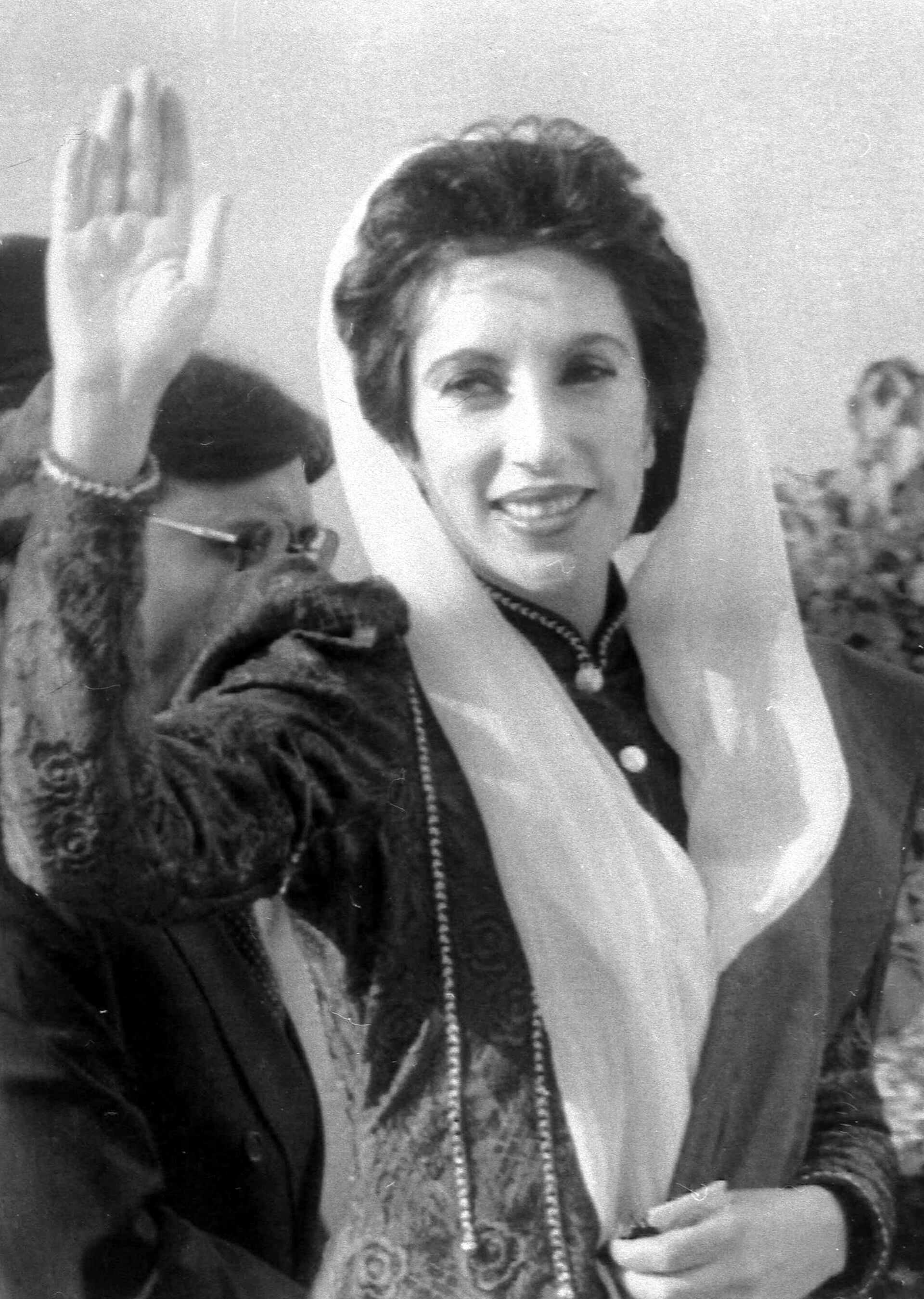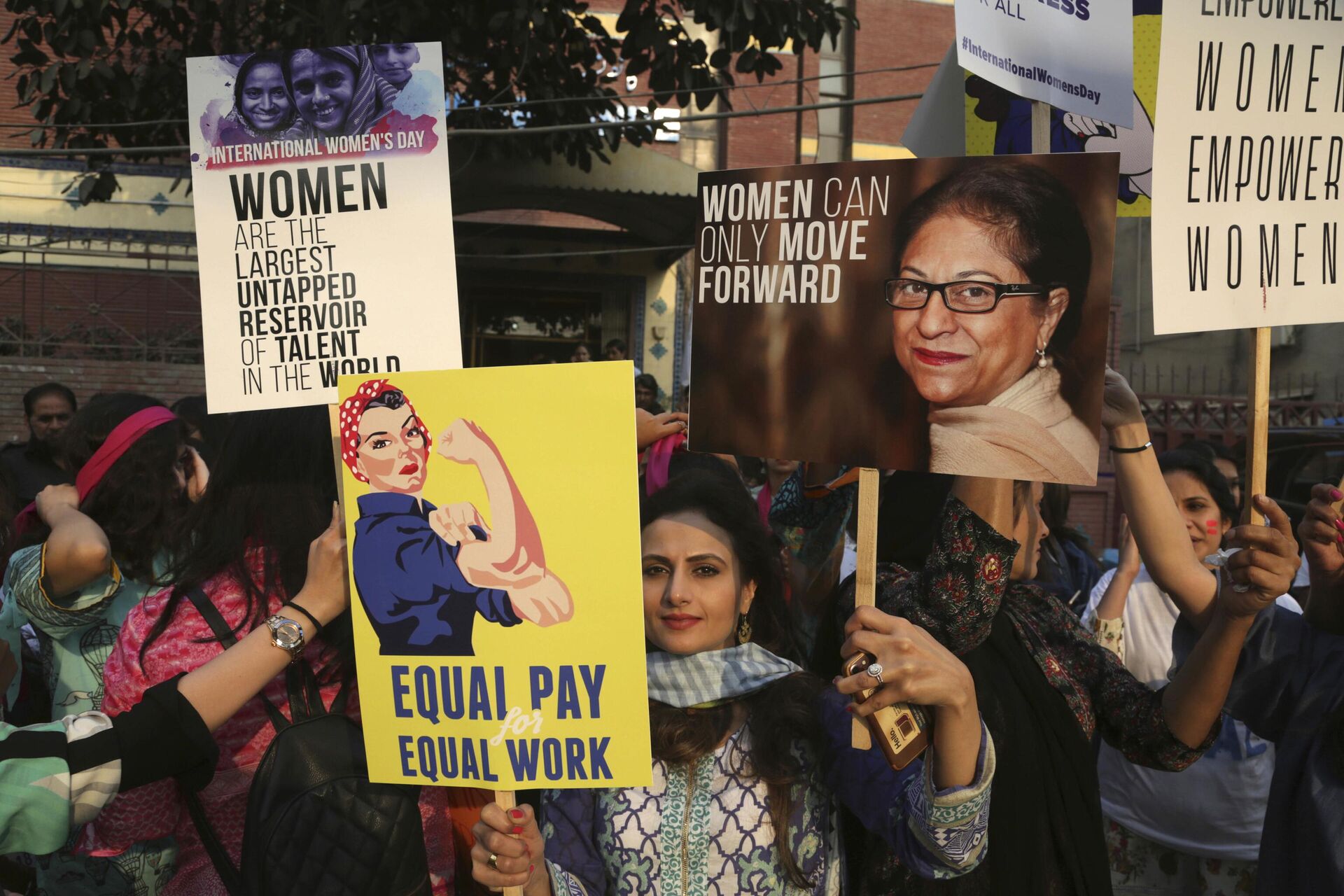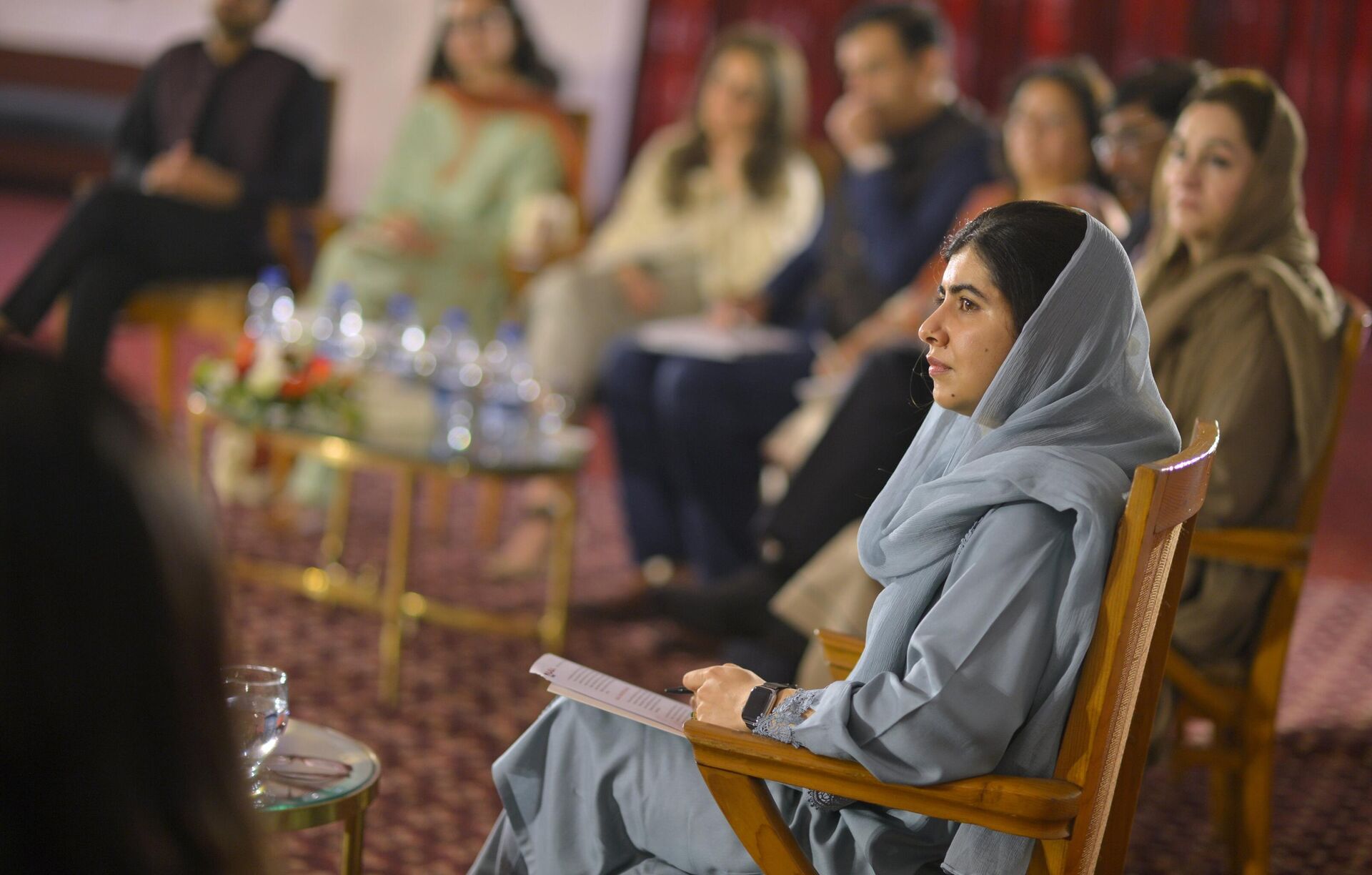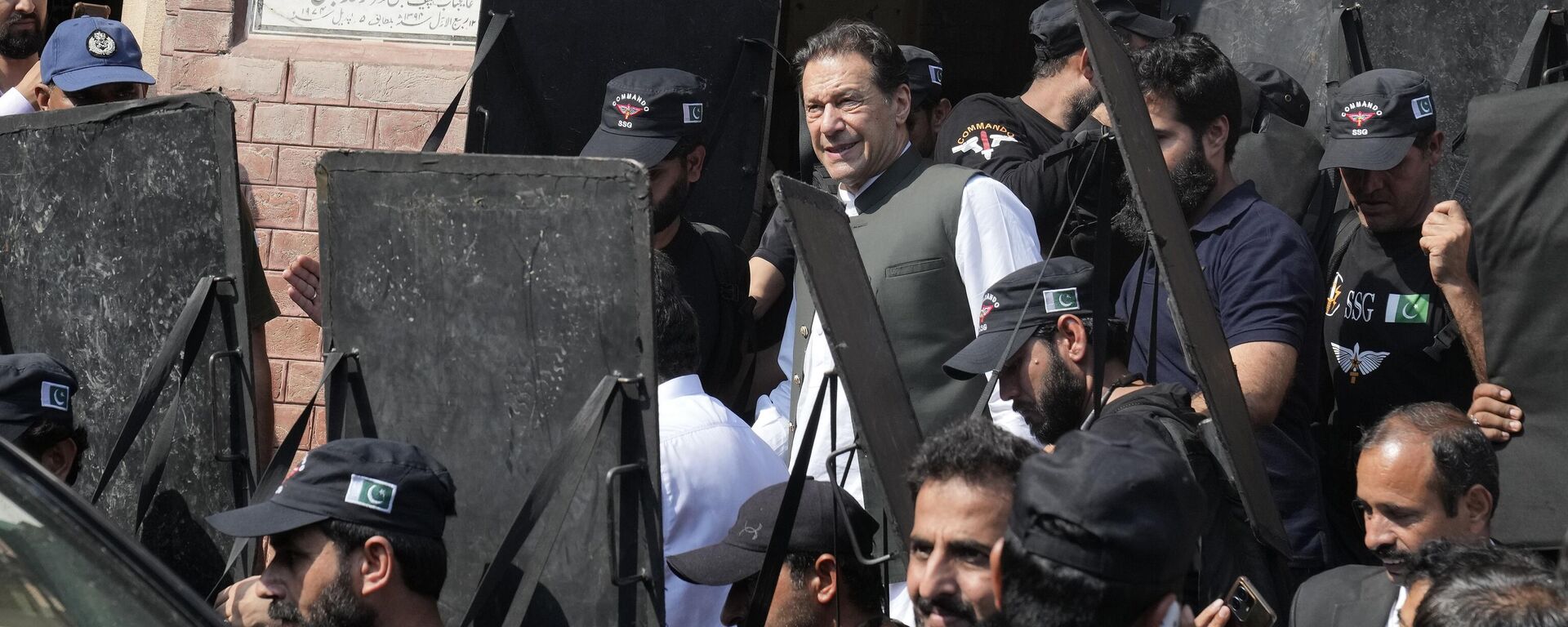https://sputniknews.in/20231231/upcoming-elections-in-pakistan-to-shed-light-on-womens-role-in-politics-6034665.html
Upcoming Elections in Pakistan to Shed Light on Women's Role in Politics
Upcoming Elections in Pakistan to Shed Light on Women's Role in Politics
Sputnik India
In the dynamic landscape of Pakistani politics in 2023, the presence of women have been steadily on the rise, marking departure from historical norms. However, a glaring gender disparity still persists in political representation.
2023-12-31T18:53+0530
2023-12-31T18:53+0530
2023-12-31T18:53+0530
benazir bhutto
pakistan
unesco
south asia
women empowerment
women's rights
women's education
elections
gender discrimination
india
https://cdn1.img.sputniknews.in/img/07e7/0b/0d/5378005_0:160:3072:1888_1920x0_80_0_0_37fd05beee60faac78554f9d43329570.jpg
Since 2002, women politicians have had prominent representation in the federal as well as provincial assemblies of Pakistan.As equal citizens of the country, women are free to contest general elections and be elected to any public office at the national, provincial, and local levels without any discrimination. However, the upcoming elections in February 2024 are raising important questions about inclusivity and the need for further implementation of changes to Pakistan's political landscape.Women's Political EngagementOver the past few decades, positive strides have been made by inspirational women politicians like Benazir Bhutto, Sherry Rehman, Shireen Mazari, and Yasmin Rashid paving the way in Pakistan's politics. However, the overall proportion of women in political roles remains low.In 2023, women constituted only 11 percent of the total political candidates, underscoring a persistent gender disparity in representation. Although this year, 3,139 women candidates have stepped forward, a rise from the 1,687 in 2018 and 1,171 in 2013 — it is still far from ideal.Even in terms of civic participation, women’s political engagement is low, as was seen in the 2018 elections, where out of the 46 million Pakistani women that were registered to vote, only 40 percent actually voted.Such an imbalance hampers the democratic ideal of equal representation, and may also deprive the nation of diverse perspectives crucial for comprehensive governance.What Causes Gender Disparity in Politics?Sputnik India spoke to a former defense attaché and security analyst Khalid Mahmood, who said that women, both as voters and political candidates, have always been fewer than men due to the deeply engrained patriarchy in Pakistan.According to the attaché, gender disparity occurs because many families in Pakistan discourage their daughters from going into politics, as it is such a male dominated field and at times unsafe for women. "Families worry for the safety of their daughters as politics requires spending much time working with men, being out and about, engaging in political discourse and standing up to the opposition", Mahmood said.Although women in Pakistan make up almost half of the population, they have a small share of senior, executive, and legislative roles — only 4.5 percent, one of the lowest in the world.In terms of political representation, gender disparity also occurs when ticket allotment is not given considering a person's merit and work. It has been noted that in Pakistan, often political parties only allot tickets to women because the law mandates them to, as they have to fill the gender quota, but if seats were allotted on the basis of merit, much of it would go to women.Moreover, the high costs of running successful election campaigns restrict women from contesting elections. Another important cause for gender disparity in politics is nepotism.What Can Be Done?Such measures have proven effective in other nations, fostering an environment where capable women can emerge and contribute meaningfully to the political discourse.Moreover, raising awareness and challenging societal norms surrounding women in politics is imperative. In Pakistan, cultural perceptions often deter women from pursuing political careers, reinforcing stereotypes that undermine their capabilities. For that reason, initiatives that highlight the accomplishments of female politicians and debunk stereotypes can play a pivotal role in altering public perception.Education and Mentorship for Female LeadersEducation is a key component of empowering women politically.Unfortunately, a recent UNESCO report showed that Pakistan has the second-highest number of girls not in education globally, with approximately 12 million girls out of school.Hence that should change, as education that equips women with the knowledge and confidence needed to participate actively in political processes must be a top priority in helping society flourish.The former attaché also said that mentorship programs can facilitate the transition of women into political roles. Experienced female politicians can offer guidance and support to aspiring leaders, helping them navigate the challenges unique to their gender.Similarly, creating networks that connect women in politics can foster a sense of solidarity, providing a platform for mutual support and advocacy.While progress is evident, the journey toward gender equality in Pakistani politics requires sustained commitment from all stakeholders. The upcoming elections in February are yet another test of the gender dynamics in Pakistan’s political field.By dismantling barriers and fostering an environment that values and encourages the participation of women, Pakistan can harness the full potential of its diverse population and build a more inclusive and representative political landscape.
https://sputniknews.in/20231208/imran-khans-legal-setbacks-implications-for-upcoming-elections-in-pakistan-5751301.html
pakistan
south asia
india
Sputnik India
feedback.hindi@sputniknews.com
+74956456601
MIA „Rossiya Segodnya“
2023
Aneela Rashid
https://cdn1.img.sputniknews.in/img/07e6/0c/0d/74548_0:0:485:484_100x100_80_0_0_821526e967ae85d041e2d30ee34fa1de.jpg
Aneela Rashid
https://cdn1.img.sputniknews.in/img/07e6/0c/0d/74548_0:0:485:484_100x100_80_0_0_821526e967ae85d041e2d30ee34fa1de.jpg
News
en_IN
Sputnik India
feedback.hindi@sputniknews.com
+74956456601
MIA „Rossiya Segodnya“
Sputnik India
feedback.hindi@sputniknews.com
+74956456601
MIA „Rossiya Segodnya“
Aneela Rashid
https://cdn1.img.sputniknews.in/img/07e6/0c/0d/74548_0:0:485:484_100x100_80_0_0_821526e967ae85d041e2d30ee34fa1de.jpg
pakistan elections, women's rights, womens in politics, politics, pakistan, women empowerment, pakistan, south asia, india, pakistan army, elections, women's rights, imran khan, women's education, benazir bhutto, election fraud, pakistan tehreek-e-insaf, pti, unesco, gender discrimination, election interference, nawaz sharif
pakistan elections, women's rights, womens in politics, politics, pakistan, women empowerment, pakistan, south asia, india, pakistan army, elections, women's rights, imran khan, women's education, benazir bhutto, election fraud, pakistan tehreek-e-insaf, pti, unesco, gender discrimination, election interference, nawaz sharif
Upcoming Elections in Pakistan to Shed Light on Women's Role in Politics
In the dynamic landscape of Pakistani politics in 2023, the presence and influence of women have been steadily on the rise, marking a significant departure from historical norms. However, a glaring gender disparity still persists in political representation.
Since 2002, women politicians have had prominent representation in the federal as well as provincial assemblies of Pakistan.
As equal citizens of the country, women are free to contest
general elections and be elected to any public office at the national, provincial, and local levels without any discrimination.
However, the
upcoming elections in February 2024 are raising important questions about inclusivity and the need for further implementation of changes to Pakistan's
political landscape.
Women's Political Engagement
Over the past few decades, positive strides have been made by inspirational women politicians like
Benazir Bhutto,
Sherry Rehman, Shireen Mazari, and Yasmin Rashid paving the way in Pakistan's politics. However, the overall proportion of women in political roles remains low.
In 2023, women constituted only 11 percent of the total political candidates, underscoring a persistent gender disparity in representation. Although this year, 3,139 women candidates have stepped forward, a rise from the 1,687 in 2018 and 1,171 in 2013 — it is still far from ideal.
Even in terms of civic participation,
women’s political engagement is low, as was seen in the 2018 elections, where out of the 46 million Pakistani women that were registered to vote, only 40 percent actually voted.
Such an imbalance hampers the democratic ideal of equal representation, and may also deprive the nation of diverse perspectives crucial for comprehensive governance.
What Causes Gender Disparity in Politics?
Sputnik India spoke to a former defense attaché and security analyst
Khalid Mahmood, who said that women, both as voters and political candidates, have always been fewer than men due to the deeply engrained
patriarchy in
Pakistan.
"Although you hear a lot of talk regarding inclusivity and equal opportunities for women in Pakistan, this applies to those women who stay at home or take up jobs such as teaching. If a woman wants to become an activist, go into politics and be successful in a male-dominated profession, she needs to be mentally strong as there are a lot of challenges, and many men do not approve of such ambitious women", Mahmood explained.
According to the attaché, gender disparity occurs because many families in Pakistan discourage their daughters from going into politics, as it is such a male dominated field and at times unsafe for women.
"Families worry for the safety of their daughters as politics requires spending much time working with men, being out and about, engaging in political discourse and standing up to the opposition", Mahmood said.
"I must add that there has been a positive dynamic in Pakistan and women these days are working in many fields that some years ago were totally male-dominated. Many women in politics today serve as a beacon of hope and inspiration for the younger generation, but there is still a long way to go", the former analyst elaborated.
Although women in Pakistan make up almost half of the population, they have a small share of senior, executive, and legislative roles — only 4.5 percent, one of the lowest in the world.
In terms of political representation, gender disparity also occurs when ticket allotment is not given considering a person's merit and work. It has been noted that in Pakistan, often political parties only allot tickets to women because the law mandates them to, as they have to fill the gender quota, but if seats were allotted on the basis of merit, much of it would go to women.
Moreover, the high costs of running successful
election campaigns restrict women from contesting elections. Another important cause for
gender disparity in politics is nepotism.
"If a woman comes from a political family and has connections in the assembly or ministries, it is much easier for her to succeed in politics. For outsiders, not from a political family, it is very difficult to make it to the provincial and federal assembly or senate", Mahmood told Sputnik.
In order to address this disparity, Pakistan needs to make multifaceted efforts. For one thing: political parties should actively promote gender diversity within their ranks. Implementing and enforcing quotas for women candidates in elections can serve as a crucial catalyst for change.
Such measures have proven effective in other nations, fostering an environment where capable women can emerge and contribute meaningfully to the political discourse.
Moreover,
raising awareness and challenging societal norms surrounding women in politics is imperative. In Pakistan, cultural perceptions often deter women from pursuing political careers, reinforcing stereotypes that undermine their capabilities. For that reason, initiatives that highlight the accomplishments of female politicians and debunk stereotypes can play a pivotal role in altering public perception.
Education and Mentorship for Female Leaders
Education is a key component of empowering women politically.
"By ensuring that girls have equal access to education, the country can lay the groundwork for a society that values the contributions of women in all spheres, including politics", the commentator noted.
Unfortunately, a recent
UNESCO report showed that Pakistan has the second-highest number of girls not in education globally, with approximately
12 million girls out of school.
Hence that should change, as education that equips women with the knowledge and confidence needed to participate actively in political processes must be a top priority in helping society flourish.
The former attaché also said that mentorship programs can facilitate the transition of women into political roles. Experienced female politicians can offer guidance and support to aspiring leaders, helping them navigate the challenges unique to their gender.
Similarly, creating networks that connect women in politics can foster a sense of solidarity, providing a platform for mutual support and advocacy.
While progress is evident, the journey toward gender equality in Pakistani politics requires sustained commitment from all stakeholders. The upcoming elections in February are yet another test of the gender dynamics in Pakistan’s political field.
By dismantling barriers and fostering an environment that values and encourages the participation of women, Pakistan can harness the full potential of its diverse population and build a more inclusive and representative political landscape.






